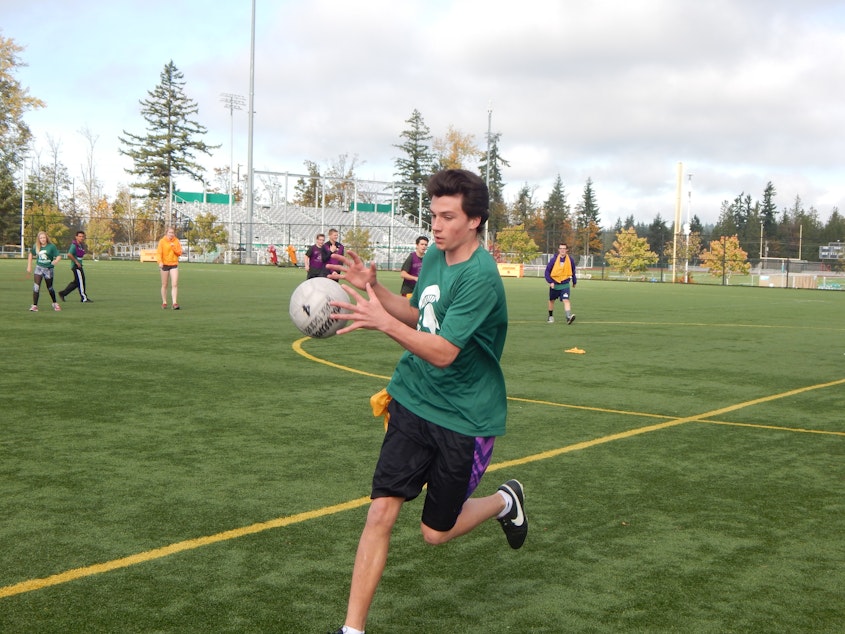The balance between safety and youth sports during the pandemic

Kids are facing big changes, not only to school this fall during the pandemic, but with restrictions on sports as well. High School football has been pushed off, but practices will eventually start up again, even as the coronavirus sticks around.
Dr. Jonathan Drezner has some thoughts on how families should approach this. He directs the University of Washington Medicine's Center for Sports Cardiology.
This interview has been edited for clarity.
Plenty of school districts around here have decided contact sports are not safe at this stage of the pandemic. What are your safety concerns surrounding kid’s sports participation these days?
The main concern is face-to-face time during sports, when people are breathing heavily, and may transmit the virus through that face-to-face time or contact. There are a lot of things that people can do outdoors safely, physically distanced.
Some of that includes sports and team sports, but it's really the physical contact, and most importantly the face-to-face time, that makes us concerned.
Are there any non-contact activities that you think offer a greater level of safety?
You can start with your low-risk sports, where people are very far apart. That might be golf, or tennis, or perhaps even swimming. You could go to some medium-risk sports, where physical contact would be very brief, and unlikely to include long duration face-to-face time: things like baseball, softball, lacrosse, soccer.
Sponsored
Then there are the high-risk sports, where face-to-face time and breathing on each other is anticipated. It's part of the sport. That would include football, basketball, perhaps even volleyball, in the way it's set up. Each sport presents its own different circumstances, and with that, its own risk.
You've come up with some guidelines. For families with young athletes, they're thinking about this, they want to engage with sports, if they feel like it's safe. What kinds of practices should they be looking for?
This is personal to me as well. I have two children who play youth sports — youth soccer with Seattle United — ages 13 and 15. We want to make sure they're safe when they're out on the field.
I think as a parent, you want to make sure that the club and team you're working with, that they have a plan, that they've thought about this, that they're not just getting all the kids clumped together on the field, or lining them up on the side and saying go. Everything really needs to be planned out, from the moment the kid gets out of the car, to when they're back in the car and going home.
What responsibilities do families have in these situations?
I think the families have a lot of responsibility here. Everyone needs to take ownership —if they're not feeling well, they don't leave the house, they don't go to practice.
Sponsored
As a parent, I think you want to check in with your child before every practice and make sure that they are feeling well, that they don't have any symptoms that might be suggestive of an illness or specifically of Covid-19. Because of course, sick individuals should not attend practice or trainings.
And likewise, if there's someone sick in the house, if you have a household member who is ill, your child should not attend practice until it's all sorted out that everyone's okay.
I know you work with the Seahawks. What can you tell us about their safety protocols?
We have a very safe practice environment right now. Everyone in the building — players, staff coaches, are all getting tested on a daily basis. The inherent aspect of the sport prevents being physically distanced, which is why it's so important to have that testing.
How's the team looking? Any predictions?
I think they look great. They have a lot of talent. I'm excited about the year. I think the prospects for the NFL to really have some games, and move forward with their season, I think looks bright.
Sponsored
Listen to the interview by clicking the play button above.


